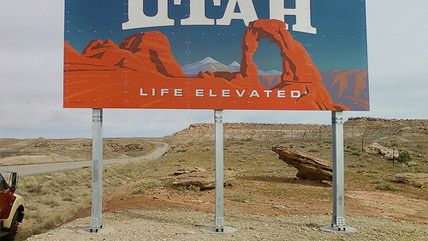Take Back the Land
Utah sovereignty

In 2012, Utah passed the Transfer of Public Lands Act, a law that essentially demanded that the federal government surrender the two-thirds of state territory it controls. Other western states, including Arizona, Wyoming, New Mexico, Colorado, Nevada, and Idaho, are now considering similar measures. Now Utah has gone a step further: planning for a future that isn't funded by federal largesse.
In 2013, state lawmakers passed a package of bills backed by the Financial Ready Utah movement. The group explains that "more than 40 cents of every dollar the state of Utah spends comes from the federal government that borrows and/or prints more than 40 cents of every dollar it sends to Utah." Since "the current fiscal trajectory of the federal government is unsustainable"-a view held not just by the Utahns but by the Congressional Budget Office's 2013 Long-Term Budget Outlook-residents of the state foresee a day when whatever they want will have to be funded locally. The new bills draw attention to the magnitude of the federal fiscal crisis, and create committees and mandates for various state agencies to assess the impact on Utah if and when federal money dries up.
"You're not going to close a revenue gap in the billions of dollars by tweaking the tax code with minor adjustments," state Rep. Ken Ivory (R-West Jordan), who has played a key role in the push for greater autonomy, told the Reason Foundation late last year. But "there's $150 trillion in mineral value locked up in the federally controlled lands throughout the West."
Show Comments (1)